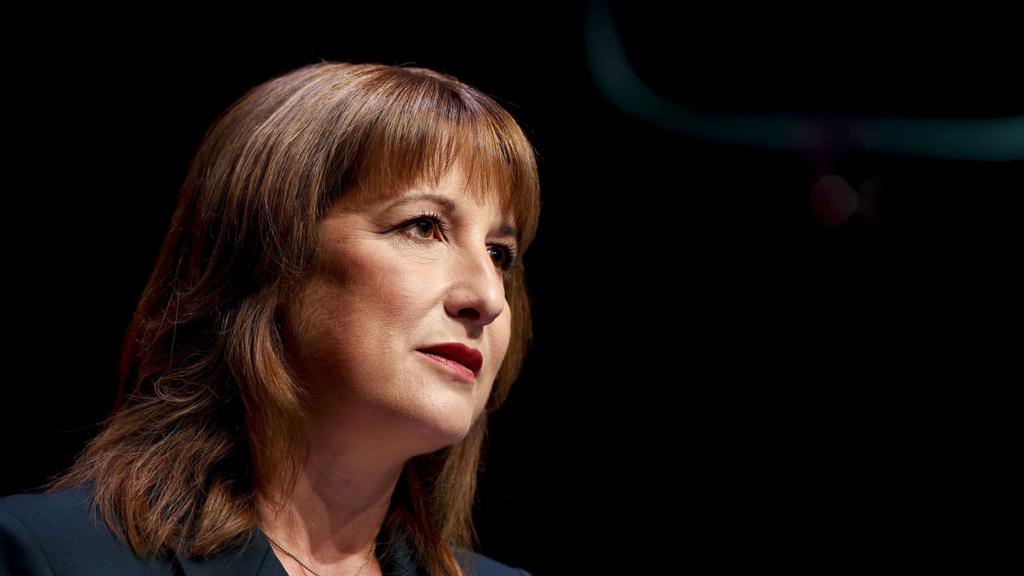The UK government is confronting a larger-than-anticipated deficit in public finances as it finalizes preparations for the upcoming Budget next month.
Sources at the BBC indicate that a revised, lower forecast for UK productivity from the government’s independent fiscal watchdog could leave the Chancellor facing a £20bn shortfall in meeting established fiscal targets.
Chancellor Rachel Reeves has affirmed that both tax increases and reductions in public spending are under consideration for the Budget scheduled next month.
HM Treasury has refrained from commenting on “speculation” pending the official forecast from the Office for Budget Responsibility (OBR), slated for release on 26 November concurrent with the Budget.
The OBR is set to submit its final forecast draft, incorporating productivity metrics – representing economic output per hour worked – to the Treasury this Friday.
Previously, the OBR had projected a partial recovery in productivity growth; however, this anticipated upturn has not materialized.
Given its pivotal role in long-term economic projections, the productivity assumption holds significant sway. Consequently, under the existing framework, even marginal adjustments can influence the budgetary requirements by several billion pounds.
Reports suggest the OBR has revised its productivity forecast downward by 0.3 percentage points – a figure initially reported by the Financial Times – aligning its projections more closely with those of the Bank of England.
Analysis by the Institute for Fiscal Studies (IFS) indicates that each 0.1 percentage point reduction in the productivity forecast could escalate government borrowing by £7bn in 2029-30. Therefore, a 0.3 point reduction could potentially add £21bn to the budgetary challenge.
These adjustments could result in an initial gap of approximately £20bn, exceeding the previously anticipated range of £10-£14bn.
Addressing such a shortfall could involve a combination of raising taxes, curtailing public expenditure, or increasing government borrowing.
Chancellor Reeves has established two primary budgetary guidelines, characterized as “non-negotiable”:
During a recent engagement with business leaders in Saudi Arabia, Reeves acknowledged the OBR’s “likely downgrade [of] productivity,” citing its “very poor” performance since the financial crisis and Brexit.
While the OBR is expected to provide detailed justification for its decision, some government ministers have privately suggested that earlier communication of these revisions could have influenced decisions made during this summer’s Spending Review.
It is important to note that several other factors may positively impact the Chancellor’s fiscal outlook, such as the decline in interest rates on government debt.
However, in light of existing pressures, including policy reversals on welfare spending and the need to bolster public finance reserves, speculation points toward potential tax increases, possibly including adjustments to income tax that could deviate from manifesto commitments.
The Treasury is scheduled to present its initial draft Budget measures to the OBR next week.
Earlier this week, the government announced the completion of several trade and investment agreements with Saudi Arabia, following Chancellor Reeves’s visit to the Gulf region.
These agreements include up to £5bn in support from UK Export Finance for projects in Saudi Arabia, which the government asserts will “unlock” contracts for British companies.
Further announcements included a £37m investment from Saudi cybersecurity firm Cipher to establish its European headquarters in London, and a £75m investment from Saudi investors and bankers into British digital bank Vemi.
The Chancellor also engaged in discussions with ministerial counterparts from Qatar and Kuwait regarding a potential broader trade agreement between the UK and the Gulf Cooperation Council.
Chancellor Rachel Reeves is considering both tax rises and spending cuts in the 26 November Budget.
People in the chancellor’s constituency share their views as Rachel Reeves prepares for the Budget.
The bosses of the UK’s largest supermarkets warn the chancellor against imposing higher taxes on the industry.
Chancellors rarely reveal tax plans before the Budget, but Reeves has softened her language on raising income tax.
Steady inflation and lower bond yields gives Rachel Reeves an opportunity, but will she take it?

